
Kintampo: The Hidden Gem of Ghana
Kintampo is a charming town located in the heart of Ghana. Known for its stunning natural beauty, Kintampo offers a serene escape from the hustle and bustle of city life. The town is famous for its lush landscapes, picturesque waterfalls, and historical landmarks. It is an ideal destination for nature lovers and history enthusiasts alike. One of the main attractions in Kintampo is the Kintampo Waterfalls. These beautiful falls cascade down multiple levels, creating a mesmerizing sight. Surrounded by green vegetation and rocky cliffs, the falls provide a perfect spot for picnics and relaxation. Visitors can also take a refreshing dip in the cool waters at the base of the falls. Another notable site is the Kintampo Mystery Caves. These intriguing caves are steeped in local legend and offer an exciting adventure for explorers. The caves are believed to have been used as a hideout by ancient warriors, adding to their mystique. Guided tours are available, providing visitors with fascinating insights into the history and geology of the caves. Kintampo is also home to the Fulla Falls, a less crowded but equally spectacular waterfall. Located in a secluded area, Fulla Falls is perfect for those seeking tranquility and solitude. The surrounding forest is rich in biodiversity, making it a great spot for bird watching and nature walks. In addition to its natural attractions, Kintampo boasts a vibrant local culture. The town hosts several traditional festivals throughout the year, offering tourists a chance to experience the rich cultural heritage of the region. Local markets are also worth exploring, where visitors can purchase handmade crafts, traditional clothing, and fresh produce.
Local tips in Kintampo
- Visit during the dry season (November to March) for the best weather and to avoid slippery paths at the waterfalls.
- Hire a local guide for the caves to get the most out of your visit and learn about the fascinating legends.
- Wear comfortable walking shoes and bring insect repellent to enjoy nature walks and explore the area.
- Carry some cash, as ATMs may not be easily accessible in the town and local markets.
- Respect local customs and traditions, especially during festivals and in local markets.
Kintampo: The Hidden Gem of Ghana
Kintampo is a charming town located in the heart of Ghana. Known for its stunning natural beauty, Kintampo offers a serene escape from the hustle and bustle of city life. The town is famous for its lush landscapes, picturesque waterfalls, and historical landmarks. It is an ideal destination for nature lovers and history enthusiasts alike. One of the main attractions in Kintampo is the Kintampo Waterfalls. These beautiful falls cascade down multiple levels, creating a mesmerizing sight. Surrounded by green vegetation and rocky cliffs, the falls provide a perfect spot for picnics and relaxation. Visitors can also take a refreshing dip in the cool waters at the base of the falls. Another notable site is the Kintampo Mystery Caves. These intriguing caves are steeped in local legend and offer an exciting adventure for explorers. The caves are believed to have been used as a hideout by ancient warriors, adding to their mystique. Guided tours are available, providing visitors with fascinating insights into the history and geology of the caves. Kintampo is also home to the Fulla Falls, a less crowded but equally spectacular waterfall. Located in a secluded area, Fulla Falls is perfect for those seeking tranquility and solitude. The surrounding forest is rich in biodiversity, making it a great spot for bird watching and nature walks. In addition to its natural attractions, Kintampo boasts a vibrant local culture. The town hosts several traditional festivals throughout the year, offering tourists a chance to experience the rich cultural heritage of the region. Local markets are also worth exploring, where visitors can purchase handmade crafts, traditional clothing, and fresh produce.
When is the best time to go to Kintampo?
Iconic landmarks you can’t miss
Kintampo Waterfalls & Fuller Waterfalls
Explore the breathtaking beauty of Kintampo Waterfalls and Fuller Waterfalls, a serene natural oasis on Ghana's Kintampo-Tamale highway.
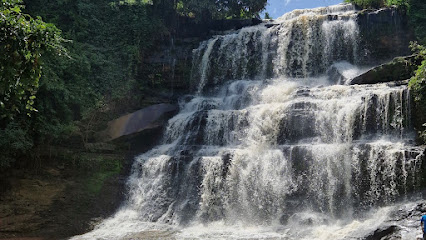
Falls Rest Stop Restaurant
Discover authentic Ghanaian flavors at Falls Rest Stop Restaurant in Kintampo – a perfect stop for travelers craving local dishes and a welcoming atmosphere.
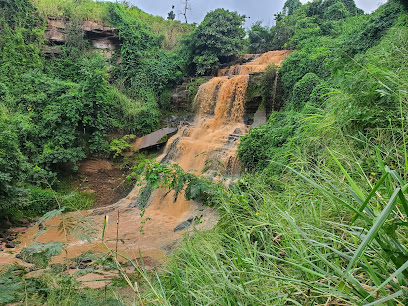
Yakam Hotel
Discover comfort and culture at Yakam Hotel in Kintampo, Ghana, your ideal base for exploring the beauty and heritage of the region.

Boabeng Fiema Monkey Sanctuary
Experience the magic of Ghana's wildlife at Boabeng Fiema Monkey Sanctuary, where playful monkeys roam freely in a lush natural habitat.
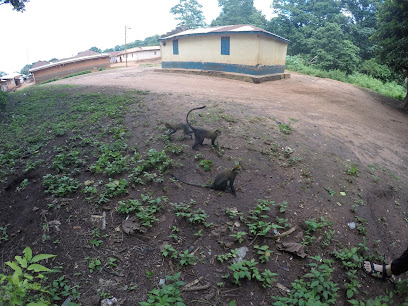
Falls Palace Hotel
Discover comfort and natural beauty at Falls Palace Hotel, your perfect retreat near Kintampo Waterfalls in Ghana.
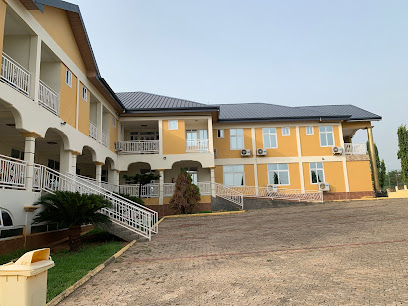
Falls Executive Lodge-kintampo
Experience comfort and local charm at Falls Executive Lodge in Kintampo, your gateway to Ghana's stunning attractions.

Royal Diamond Hotel
Discover comfort and authentic Ghanaian hospitality at the Royal Diamond Hotel in Kintampo, your ideal base for exploration and relaxation.
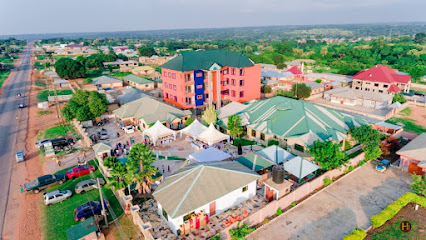
Fuller Waterfalls
Experience the breathtaking beauty of Fuller Waterfalls in Yabraso, a must-visit natural attraction showcasing Ghana's stunning landscapes.
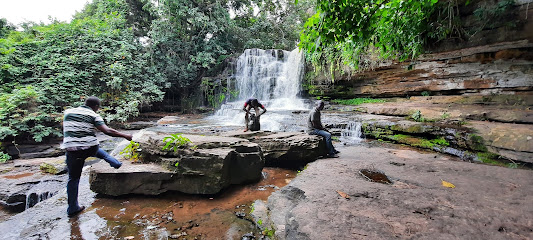
The Centre of Ghana
Experience the vibrant culture and rich history of Ghana at The Centre of Ghana, a must-visit landmark in Kintampo.
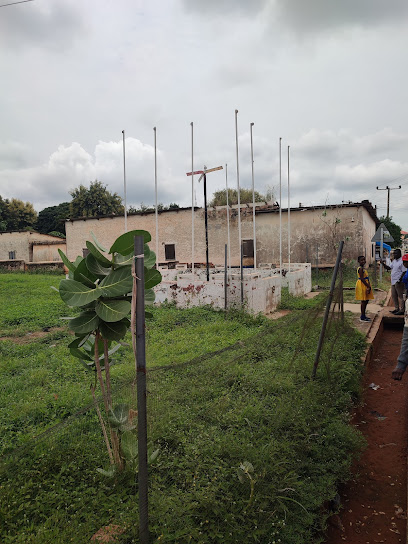
KINTAMPO TECHNICAL INSTITUTE - KINTECH
Discover Kintampo Technical Institute, a vital educational hub in Bono East, Ghana, showcasing local culture and vocational training opportunities.
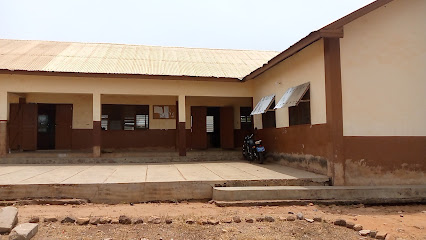
Kyeremankoma
Discover the authentic essence of Kintampo at Kyeremankoma, a unique housing complex that showcases local culture and warm community spirit.

Unmissable attractions to see
Boabeng Fiema Monkey sanctuary - Information center
Explore the Boabeng Fiema Monkey Sanctuary, a wildlife haven in Ghana, home to free-roaming primates and breathtaking natural scenery.
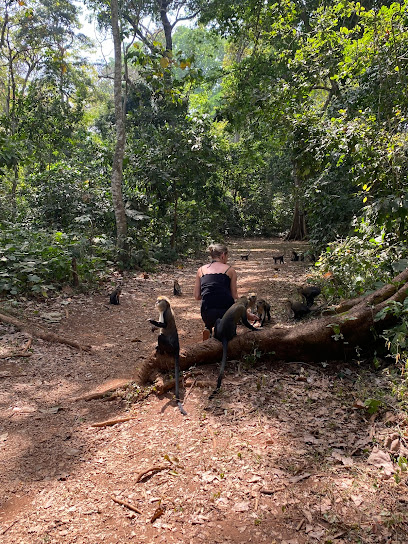
Kintampo Central Mosque
Explore the Kintampo Central Mosque, a stunning architectural gem reflecting Ghana's Islamic heritage and community spirit.
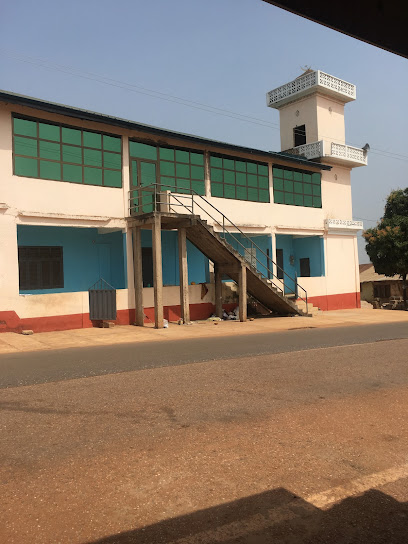
St. Joseph The Worker Catholic Church, Kintampo
Discover spiritual solace and community warmth at St. Joseph The Worker Catholic Church in Kintampo, a serene landmark of faith and culture.
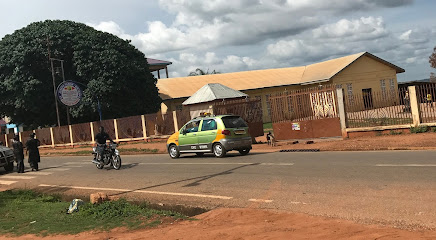
Bono Manso Waterfalls
Explore the breathtaking beauty of Bono Manso Waterfalls in Ghana, a serene escape and a paradise for nature lovers and adventure seekers alike.
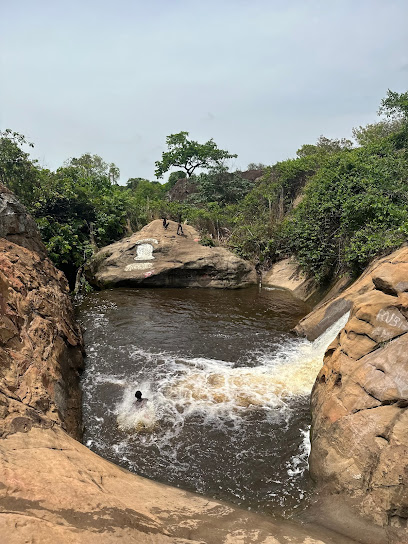
Tano Sacred Grove
Discover the enchanting Tano Sacred Grove in Tanoboase, Ghana, where nature meets history in a serene and sacred environment.
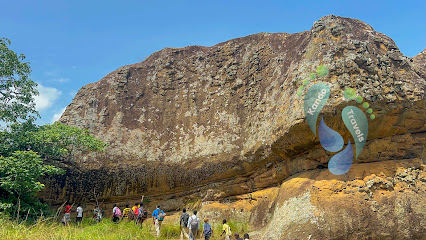
The Centre of Ghana
Explore the cultural heart of Ghana at The Centre of Ghana, a significant landmark showcasing the nation's rich heritage and diverse traditions.
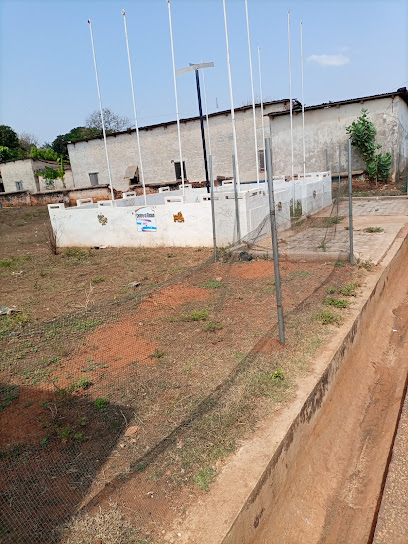
Boabeng Fiema Monkey Sanctuary
Discover the Boabeng Fiema Monkey Sanctuary, a lush paradise where monkeys roam freely, offering a unique glimpse into Ghana's vibrant wildlife and conservation efforts.
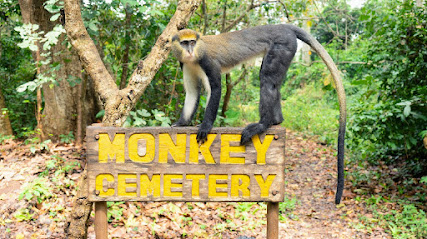
The boten rock
Explore the breathtaking beauty of Boten Rock, a natural landmark with stunning geological formations and rich cultural heritage in Ghana.
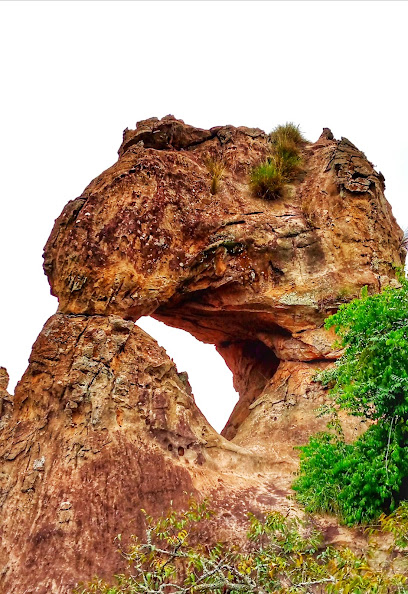
Banda nkwanta park
Discover Banda Nkwanta Park, a peaceful oasis in Ghana, perfect for relaxation, nature walks, and cultural connections with the local community.
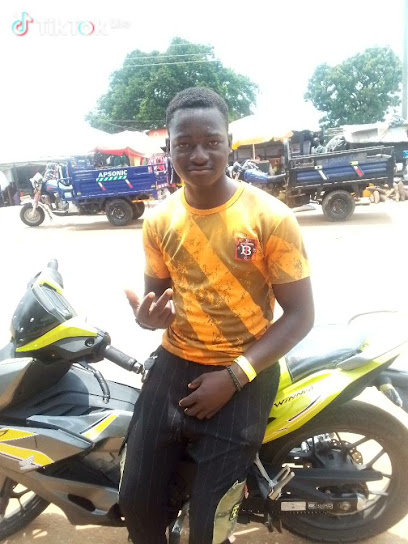
Kintampo waterfalls Car Park
Experience the breathtaking beauty of Kintampo Waterfalls, a natural wonder in the heart of Ghana, perfect for nature lovers and adventure seekers alike.
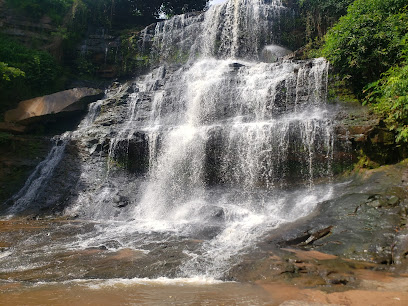
NCHIRAA WATERFALLS
Experience the breathtaking beauty of Nchiraa Waterfalls in Nkyeraa, Ghana - a serene escape surrounded by nature's wonders.
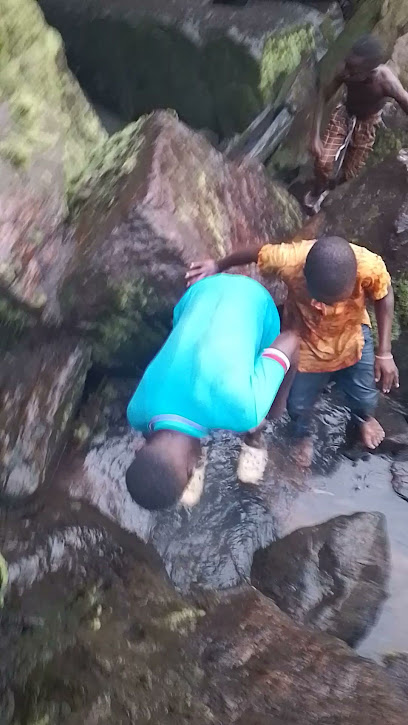
Kunso WaterFalls & Caves Site
Experience the breathtaking beauty of Kunso Waterfalls & Caves, a must-visit eco-tourism destination in Kintampo, Ghana, rich in nature and history.
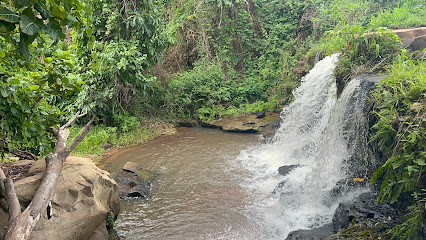
West Hills Mountain View
Explore West Hills Mountain View in Jema, Ghana, where breathtaking panoramas and serene nature await every traveler.

NANTE TOWN PARK
Discover the tranquil beauty of Nante Town Park, a picturesque oasis in Ghana perfect for relaxation, picnics, and nature exploration.

Gyapan school
Experience the rich educational heritage and cultural vibrancy of Ghana at Gyapan School in Banda Nkwanta, a unique tourist attraction that captivates every visitor.
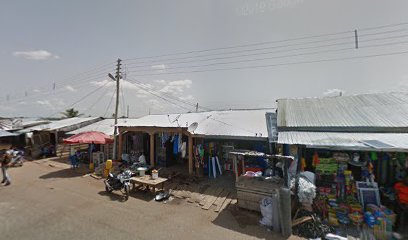
Essential places to dine
Falls Rest Stop Restaurant
Experience authentic Ghanaian cuisine at Falls Rest Stop Restaurant in Kintampo - a must-visit pit stop on your travel adventures.
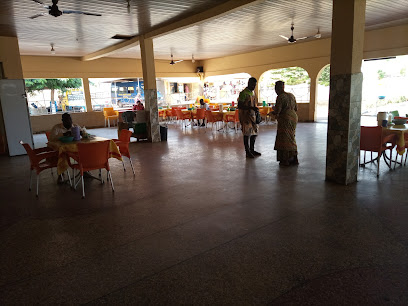
Yakam Hotel
Discover comfort at Yakam Hotel in Kintampo - your gateway to exploring Ghana's natural beauty and rich culture.

Falls Palace Hotel
Experience comfort and nature at Falls Palace Hotel, your gateway to exploring the breathtaking Kintampo waterfalls in Ghana.
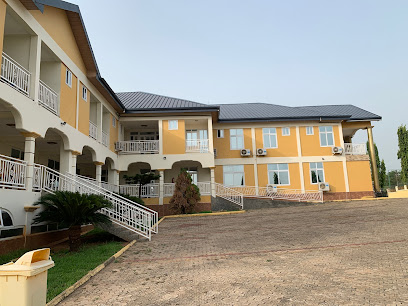
Okumah Executive Lodge
Discover comfort and culture at Okumah Executive Lodge in Kintampo - your ideal bed & breakfast getaway in Ghana.
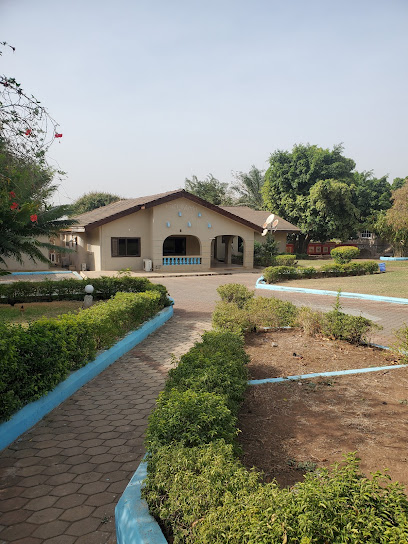
Falls Executive Lodge-kintampo
Experience comfort and local charm at Falls Executive Lodge in Kintampo, your gateway to exploring central Ghana's natural beauty.

Adomaa Memorial Hotel
Experience comfort and local charm at Adomaa Memorial Hotel in Kintampo, your perfect retreat in Ghana's scenic heartland.
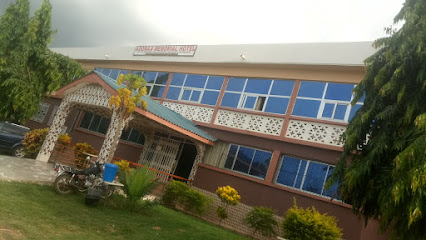
Royal Diamond Hotel
Experience comfort and warmth at Royal Diamond Hotel in Kintampo - your perfect retreat along the Bolgatanga-Tamale Road.
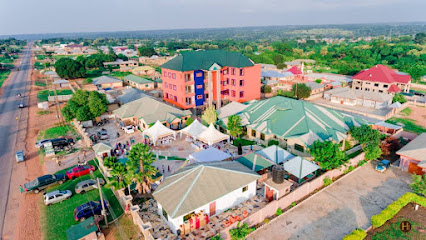
Food Plaza Bar & Restaurant
Discover an exquisite blend of Indian and Italian cuisines at Food Plaza Bar & Restaurant in Techiman - a gastronomic delight for every traveler.
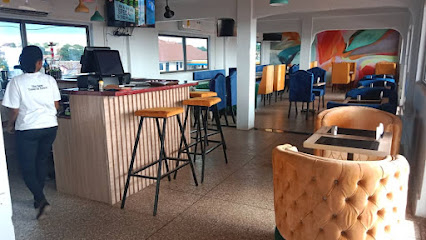
Tamatama Lounge Bar & Restaurant
Discover the vibrant culinary scene at Tamatama Lounge Bar & Restaurant in Kintampo - where local flavors meet international flair.
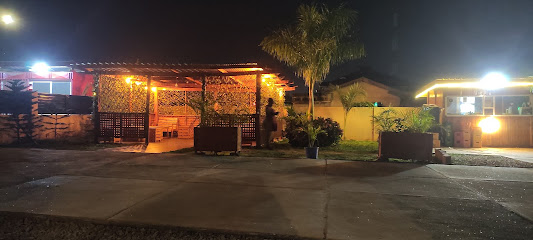
Club House And Restaurant
Experience authentic Ghanaian cuisine at Club House And Restaurant in Atebubu—where every meal is a taste of local culture and tradition.

Reis Day By Day Rest Stop
Discover culinary delights at Reis Day By Day Rest Stop in Kintampo – where every traveler finds their taste.
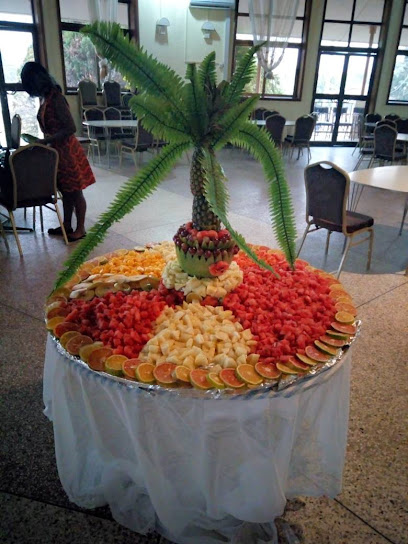
Home of Fast Food
Experience delicious fast food delights in Kintampo at the Home of Fast Food - where local flavors meet global tastes!
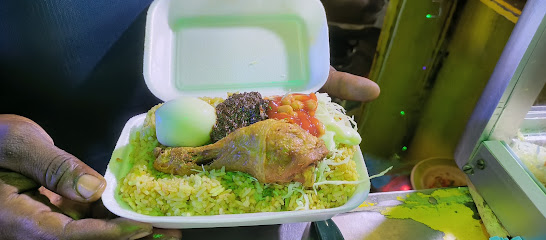
Sister Rabi Special Waakye
Experience the heart of Ghanaian cuisine at Sister Rabi Special Waakye in Kintampo with authentic flavors and local hospitality.
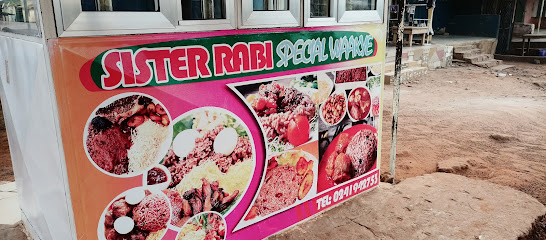
EleVee Patio Pub & Night Club Kintampo
Discover the pulse of Kintampo's nightlife at EleVee Patio Pub & Night Club – where music meets unforgettable moments.
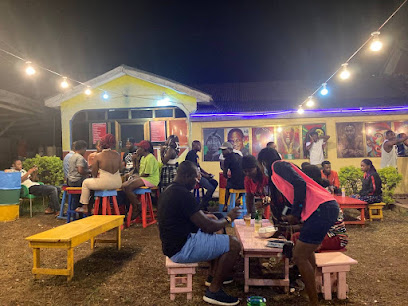
KADDISH PIZZA
Discover delightful pizzas at Kaddish Pizza in Kintampo – where every slice tells a story!
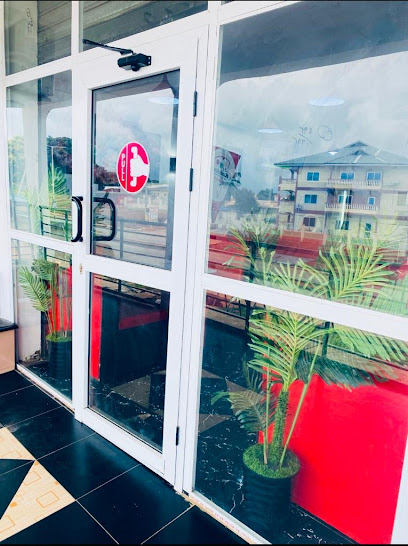
Markets, malls and hidden boutiques
Kintampo Wednesday's Market
Discover the heart of Kintampo at Wednesday's Market, where local flavors and vibrant culture come together in a unique shopping experience.
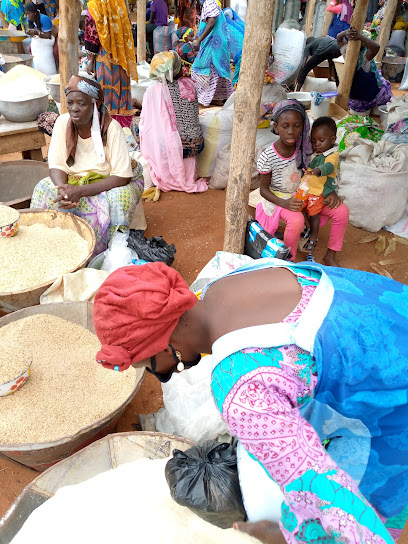
Kintampo rest stop (STC TERMINAL).
Discover the vibrant Kintampo Rest Stop, a variety store offering local goods and refreshments in the heart of Ghana's travel routes.
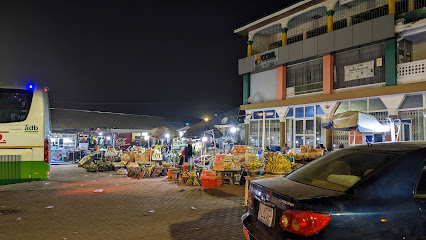
Ntankoro Station
Discover unique home goods and local crafts that capture the essence of Ghana at Ntankoro Station in Kintampo.
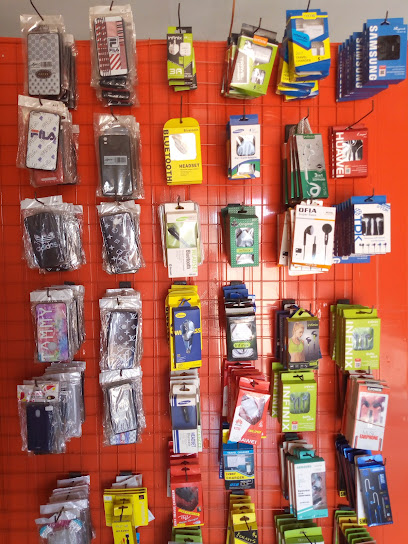
Kintampo General market
Explore Kintampo General Market, a lively hub of local culture, fresh produce, and unique handicrafts in the heart of Ghana.
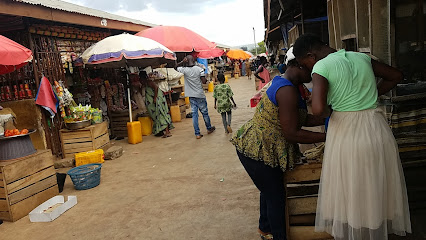
Cheap Side Enterprise
Experience the heart of Kintampo at Cheap Side Enterprise, your local supermarket for fresh produce and authentic Ghanaian flavors.

Zoeway Aluminum Glass Venture
Explore the artistry of glass at Zoeway Aluminum Glass Venture in Kintampo, where craftsmanship meets creativity in every exquisite piece.
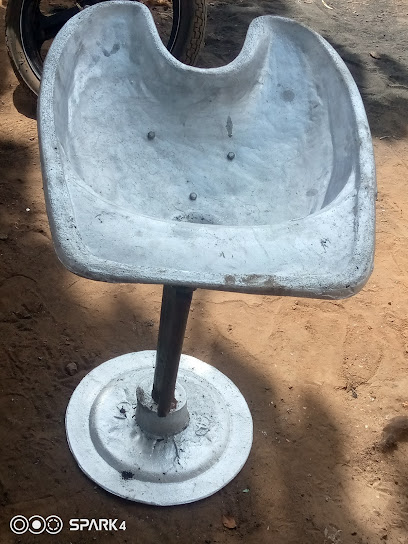
KINGSMEN CLOTHING
Explore the vibrant fashion scene at Kingsmen Clothing in Kintampo, where local styles meet contemporary trends.
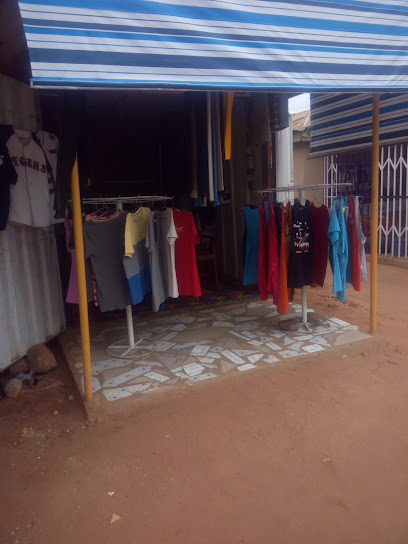
Mma morfiata Collection
Explore the essence of Ghanaian culture through unique fashion at Mma Morfiata Collection in Kintampo, a destination for stylish souvenirs.
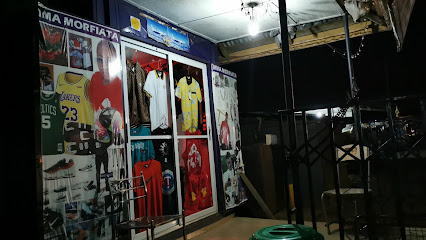
New Life Pharmacy Kintampo
Visit New Life Pharmacy Kintampo for essential health products and personalized care while exploring this vibrant Ghanaian town.

Offa Yaw enterprise Kintampo
Discover the heart of Kintampo at Offa Yaw Enterprise, where local culture meets everyday shopping in a vibrant supermarket experience.

Matlee
Experience the essence of Kintampo at Matlee, a general store where local culture meets vibrant community life.

Who Jah Bless
Discover the vibrant local culture at Who Jah Bless supermarket in Kintampo, your go-to spot for fresh produce and Ghanaian specialties.
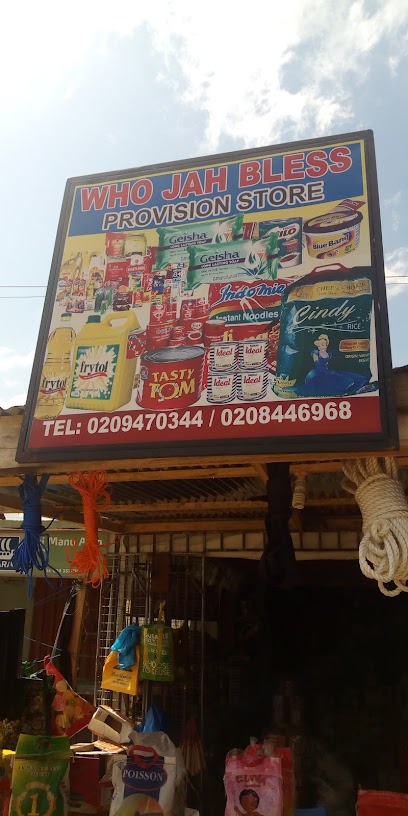
Paradigm Business Center
Discover the Paradigm Business Center in Kintampo for all your electronics needs, featuring the latest gadgets and expert repair services.

SKY-3 FARMS
Immerse yourself in the natural beauty and rich flavors of Ghanaian agriculture at SKY-3 FARMS, a delightful farm shop in Kintampo.

YIB Enterprise
Discover quality automotive services at YIB Enterprise, Kintampo's trusted auto spring shop on the Tamale highway.

Essential bars & hidden hideouts
Falls Rest Stop Restaurant
Savor authentic Ghanaian cuisine in a cozy atmosphere at Falls Rest Stop Restaurant, your perfect culinary pit stop in Kintampo.
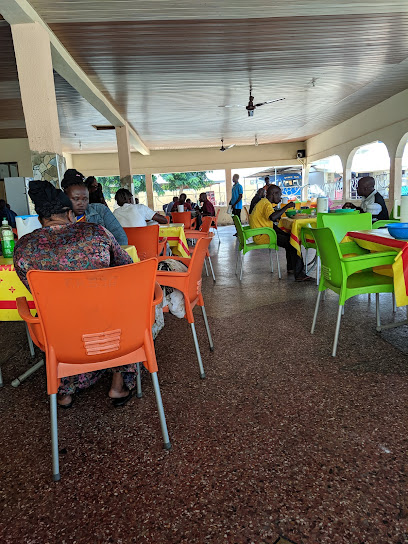
Tamatama Lounge Bar & Restaurant
Discover the vibrant culinary scene at Tamatama Lounge Bar & Restaurant in Kintampo, where local flavors and international dishes are served in a lively atmosphere.
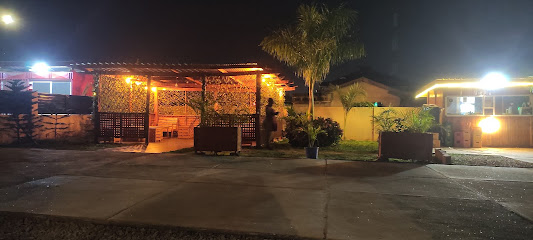
Black Star
Discover the lively atmosphere of Black Star in Kintampo, a premier sports bar for unforgettable nights filled with entertainment and local culture.
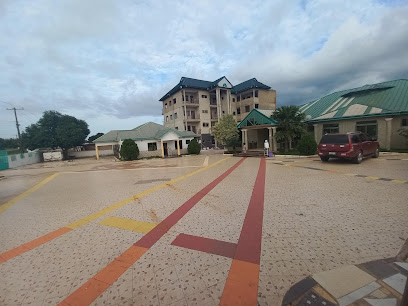
Reis Day By Day Rest Stop
Enjoy a delightful culinary experience at Reis Day By Day Rest Stop, Kintampo's go-to bar and restaurant for travelers.
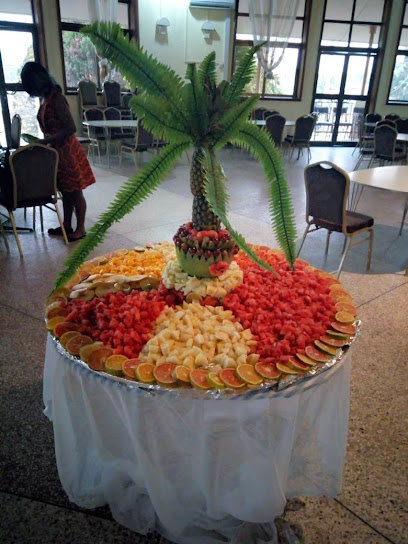
Sister Rabi Special Waakye
Experience authentic Ghanaian cuisine at Sister Rabi Special Waakye, where traditional flavors meet local hospitality in the heart of Kintampo.
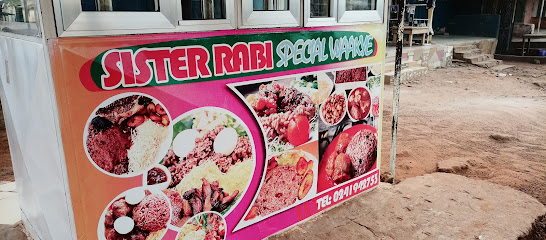
EleVee Patio Pub & Night Club Kintampo
Discover the vibrant nightlife of Kintampo at EleVee Patio Pub & Night Club, a premier destination for entertainment and socializing.
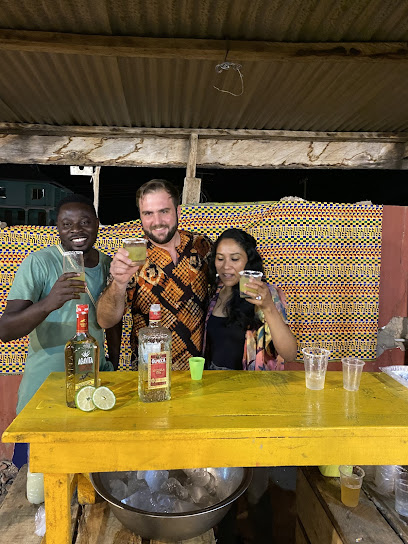
Marigold Pub & Night Club
Discover the lively atmosphere and unforgettable nightlife at Marigold Pub & Night Club in Kintampo.
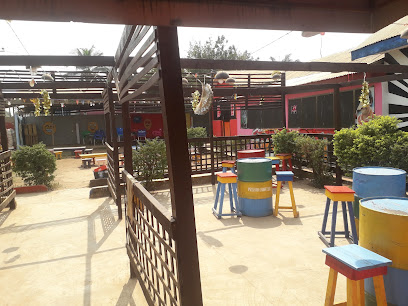
MAG'S KITCHEN
Discover the essence of Ghanaian cuisine at MAG'S KITCHEN in Kintampo, where authentic flavors and warm hospitality await every visitor.
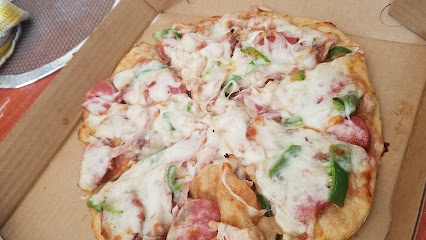
Gruma-Line Dagaba Chief's Palace
Immerse yourself in the rich traditions of Ghana at the Gruma-Line Dagaba Chief's Palace, a cultural gem in Kintampo.

RASTA BAR
Experience the vibrant atmosphere of Rasta Bar in Kintampo, where local culture meets refreshing drinks and lively entertainment.
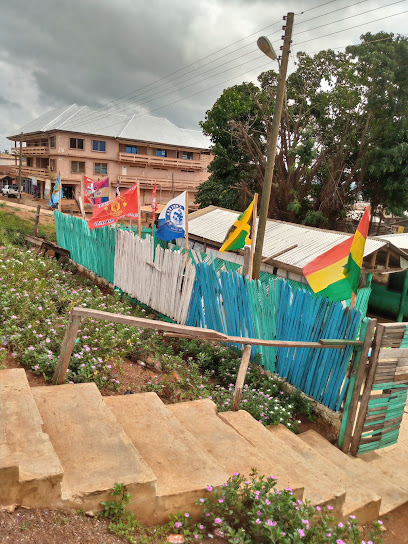
Day By Day Chop Bar
Discover authentic Ghanaian cuisine and vibrant atmosphere at Day By Day Chop Bar in Kintampo, where every meal is a celebration of local flavors.
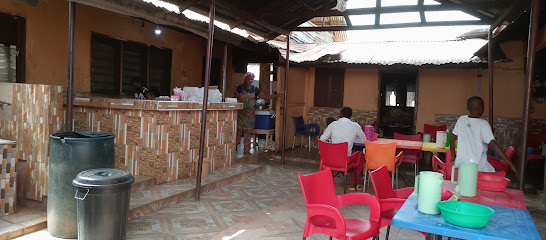
Kokuma
Experience the vibrant flavors of Kintampo at Kokuma, a premier seafood restaurant offering fresh and authentic Ghanaian cuisine.

Apaana Spot
Experience the vibrant flavors of Ghana at Apaana Spot, a must-visit chop bar in Kintampo offering authentic local dishes and a warm atmosphere.

Nyame Tumi so Restaurant, Kintampo
Savor the flavors of Ghana at Nyame Tumi so Restaurant in Kintampo, where authentic dishes and warm hospitality await every visitor.

Zanziba pito bar
Immerse yourself in the lively culture of Kintampo at Zanziba Pito Bar, a vibrant hub for social interactions and local drinks.

Local Phrases about Kintampo
-
- HelloAkwaaba
[ah-kwah-bah] - GoodbyeKaa kɛ
[kahh kay] - YesAane
[ah-neh] - NoDabi
[dah-bee] - Please/You're welcomeMesrɛ
[meh-sreh] - Thank youMedaase
[meh-dah-ah-say] - Excuse me/SorryAfehyia pa
[ah-feh-yee-ah pah] - How are you?Wo ho te sɛn?
[woh hoh teh saynn?] - Fine. And you?Adɛn. Na wo ho?
[ah-dehn. nah woh hoh?] - Do you speak English?Wo bɛkɔ English?
[woh beh-koh english?] - I don't understandMente ase
[mehn-teh ah-say]
- HelloAkwaaba
-
- I'd like to see the menu, pleaseMepɛ menu, mesrɛ
[meh-peh meh-noo, meh-sreh] - I don't eat meatMente asa
[mehn-teh ah-sah] - Cheers!Afehyia pa
[ah-feh-yee-ah pah] - I would like to pay, pleaseMepɛ sika, mesrɛ
[meh-peh see-kah, meh-sreh]
- I'd like to see the menu, pleaseMepɛ menu, mesrɛ
-
- Help!Boa me!
[boh-ah meh!] - Go away!Kɔ wɔ he!
[koh woh heh!] - Call the Police!Fa polis!
[fah poh-lees!] - Call a doctor!Fa doctor!
[fah dohk-tor!] - I'm lostMɛkaa wo
[meh-kah woh] - I'm illMɛnte asɛm
[mehn-teh ah-sehm]
- Help!Boa me!
-
- I'd like to buy...Mepɛ kɔ...
[meh-peh koh...] - I'm just lookingMente asa
[mehn-teh ah-sah] - How much is it?Aduane yi bɛkɔ sɛn?
[ah-dwah-neh yee beh-koh saynn?] - That's too expensiveAduane yi yɛ yɛn nkɔ
[ah-dwah-neh yee yehn enn-koh] - Can you lower the price?Wopɛ sika ahyɛ me?
[woh-peh see-kah ah-hee meh?]
- I'd like to buy...Mepɛ kɔ...
-
- What time is it?Nnyinasɛm yi bɛyɛ sɛn?
[nn-yih-nah-sehm yee beh-ye saynn?] - It's one o'clockNnyinasɛm yi baako
[nn-yih-nah-sehm yee bah-koh] - Half past (10)Nnyinasɛm yi de abɛ
[nn-yih-nah-sehm yee deh ah-beh] - MorningAnɔpa
[ah-noh-pah] - AfternoonAwia
[ah-wee-ah] - EveningAnwummere
[ahn-woom-meh-reh] - YesterdayNkɔso
[en-koh-soh] - TodayNnidi
[nn-yee-dee] - TomorrowNnɛ
[nn-yeh] - 1Baako
[bah-koh] - 2Abɛ
[ah-beh] - 3Ato
[ah-toh] - 4Anan
[ah-nahn] - 5Anum
[ah-noom] - 6Aso
[ah-soh] - 7Afie
[ah-fee-eh] - 8Aforo
[ah-foh-roh] - 9Anidaso
[ah-nee-dah-soh] - 10Yadɛ
[yah-deh]
- What time is it?Nnyinasɛm yi bɛyɛ sɛn?
-
- Where's a/the...?Ɛhe a...
[eh-heh ah...] - What's the address?Ɛkan adwuma no bɛkyerɛ sɛn?
[eh-kahn ah-dwah-mah no beh-chay-reh saynn?] - Can you show me (on the map)?Wopɛ kyerɛ me (wɔ sɛnea?)
[woh-peh chay-reh meh (woh say-ne-ah?)] - When's the next (bus)?Ɛwɔ sɛn a...
[eh-woh saynn ah...] - A ticket (to ....)Tikɛt (kɔ ....)
[tee-keht (koh ....)]
- Where's a/the...?Ɛhe a...
History of Kintampo
-
The Kintampo culture, dating back to around 2500-1400 BCE, is one of the significant prehistoric cultures in West Africa. This era is known for its advancements in stone tool technology, pottery, and early forms of agriculture. Archaeological findings in the Kintampo area have revealed remnants of ancient settlements, including terracotta figurines, polished stone tools, and evidence of early crop cultivation such as millet and cowpeas.
-
During the transatlantic slave trade era, Kintampo served as a major slave market and transit point. Enslaved people from the northern regions of Ghana and beyond were brought to Kintampo before being transported to coastal areas for shipment to the Americas. This dark chapter in Kintampo's history is remembered with solemn reflection on the human suffering and resilience of those who passed through the area.
-
In the late 19th and early 20th centuries, Kintampo came under British colonial rule as part of the Gold Coast colony. The British established administrative and commercial centers in the town, significantly altering its social and economic structure. The colonial period also saw the construction of infrastructure such as roads and government buildings, some of which still stand today as historical landmarks.
-
The Kintampo Waterfalls, also known as Sanders Falls during the colonial era, are among the most picturesque natural attractions in Ghana. Historically, the waterfalls have been a sacred site for local communities, who believed in the spiritual significance of the cascading waters. The falls continue to be a popular destination for both locals and tourists, offering a glimpse into the natural beauty and cultural heritage of the region.
-
Established in 1994, the Kintampo Health Research Center (KHRC) has played a pivotal role in public health research in Ghana and beyond. The center focuses on a wide range of health issues, including malaria, maternal and child health, and infectious diseases. The KHRC's contributions to medical research have had a significant impact on health policies and practices in the region, making it a vital institution in Kintampo's modern history.
-
The Fulani people, known for their pastoral lifestyle, have had a presence in the Kintampo area for centuries. The interaction between the Fulani and indigenous communities has shaped the cultural landscape of the region. Fulani settlements are characterized by their unique architecture, traditional practices, and cattle herding activities. The Fulani's influence on local customs and economy remains an integral part of Kintampo's cultural tapestry.
Kintampo Essentials
-
Kintampo is located in the Bono East Region of Ghana. The nearest major airport is Kotoka International Airport in Accra, approximately 450 kilometers away. From Accra, you can take a domestic flight to Tamale, which is about 100 kilometers from Kintampo. Alternatively, you can travel by road from Accra or Kumasi, which is around 130 kilometers away. The journey by road typically takes 5-7 hours from Accra and 2-3 hours from Kumasi. Buses, minibuses (trotros), and private car hires are common means of road transport.
-
Within Kintampo, you can get around using local taxis or shared minibuses (trotros). Taxis are relatively inexpensive and can be hired for short trips within the town or for day trips to nearby attractions. Bicycles and motorcycles are also popular means of local transport. For those who prefer private transport, car rental services are available in the larger cities, and it is advisable to arrange for a rental before arriving in Kintampo.
-
The official currency in Ghana is the Ghanaian Cedi (GHS). Credit cards are accepted in some hotels, restaurants, and larger shops, but it is advisable to carry cash, especially in smaller establishments and rural areas. ATMs are available in Kintampo, but it is wise to withdraw sufficient cash in larger cities before traveling. Mobile money services like MTN Mobile Money and Vodafone Cash are widely used and accepted.
-
Kintampo is generally a safe destination for tourists, but it is advisable to take standard precautions. Avoid walking alone at night in unfamiliar areas and keep an eye on your belongings in crowded places. While there are no specific high-crime areas targeting tourists, it is always best to stay vigilant and aware of your surroundings. Petty theft can occur, so keep valuables secure and consider using a money belt.
-
In case of emergency, dial 112 for immediate assistance. The local police station and medical facilities are available in Kintampo. It is recommended to have travel insurance that covers medical emergencies. For minor health issues, there are pharmacies in the town where you can purchase over-the-counter medications. The nearest major hospital is in Techiman, about an hour's drive away.
-
Fashion: Do dress modestly, especially when visiting religious sites or rural areas. Avoid wearing revealing clothing. Religion: Do respect local customs and traditions. Always take off your hat or cap when entering religious sites. Public Transport: Do be respectful and give up your seat to elderly passengers. Don’t eat or drink on public transport. Greetings: Do greet people with a handshake and a smile. A slight bow of the head is also a sign of respect. Eating & Drinking: Do try local delicacies like fufu and jollof rice. Accept food offerings graciously. Don’t refuse hospitality, as it is considered impolite.
-
To experience Kintampo like a local, visit the Kintampo Market where you can buy fresh produce and traditional Ghanaian goods. Engage with locals, as they are often friendly and willing to share stories about the town's history and culture. Don’t miss visiting the Kintampo Waterfalls and the Fuller Falls, which are popular local attractions. For a unique experience, take a guided tour of the Kintampo Slave Market and the nearby heritage sites.
Trending Landmarks in Kintampo
Nearby Cities to Kintampo
-
Things To Do in Kumasi
-
Things To Do in Tamale
-
Things To Do in Wa
-
Things To Do in Koforidua
-
Things To Do in Kpalimé
-
Things To Do in Ho
-
Things To Do in Atakpamé
-
Things To Do in Accra
-
Things To Do in Cape Coast
-
Things To Do in Notse
-
Things To Do in Sekondi-Takoradi
-
Things To Do in Takoradi
-
Things To Do in Lomé
-
Things To Do in Abidjan
-
Things To Do in Lokossa






